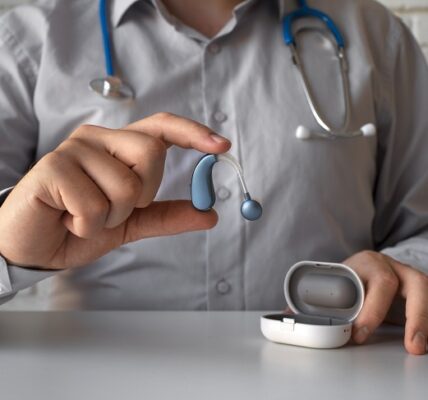When we talk about health, many people think about taking care of vital structures such as the heart, lungs and liver, but they forget about the largest organ in our body: Dry skin problem. Responsible for functions such as protection and excretion, it deserves special attention. 1
One of the factors that can harm the health of this organ is the presence of dry skin. But why does this happen? What are the ways to deal with this Dry skin problem?
Continue reading to learn more about dry skin and understand how to improve the appearance and health of this important structure!
What does dry skin look like?
The first step to understanding the problem is to find out whether or not your skin is dry. So, check out the main signs of dryness!
Dehydration
The first sign of dryness is dehydration. Excessively dry skin loses too much moisture, making it visibly dehydrated . This results in more noticeable fine lines and an itchy feeling. 2
Peeling skin and rough texture
The outer layer of skin is continually renewed, with the body shedding dead skin cells. 2 When skin becomes excessively dry, it can visibly flake. 3 This can cause the skin to feel rough to the touch. 2
Cracks
As the skin dries out, it shrinks, causing cracks to form . Some of these cracks can be deep and even bleed. 2
Skin infections
If cracks develop into lesions, tears in the outer layer can occur, allowing germs to enter and cause infection. Signs of infection include yellow crusts, areas oozing pus or other fluids, swelling, and discoloration. 2
Pain, burning and stinging
These problems can cause a sensation of pain in the region. In addition, reports of burning, as well as stinging in the driest or most injured area, are frequent. 2
Itch
Many people with excessively dry skin report constant itching , which can make it difficult to concentrate on daily tasks and affect sleep. 2
Why does skin get dry in winter?
In winter, skin often becomes drier due to a combination of environmental factors and changes in skin care habits . 4
One example of this is that during this season, the air tends to be drier . Low humidity strips the skin of its natural moisture, leaving it dry and dehydrated. 3
Furthermore, in winter, our glands, such as the sebaceous glands (which produce sweat and oils), tend to be less active. As a result, the skin’s natural hydration ends up being compromised. 4
Among the habits associated with this type of problem, we can mention excessive hot baths . They end up damaging hydration due to the imbalance in the lipid protection (oils and fats) of the skin. 5
Is cold the only cause of dryness?
No. In addition to reduced temperatures, other causes may be associated with dry skin. 6 Check out some of the most common causes:
- age , due to the decrease in sebum production over the years;
- some medicines ;
- professions that require frequent hand contact with water or chemicals;
- vitamin or mineral deficiency ;
- smoking ;
- some medical conditions, such as atopic dermatitis, psoriasis, diabetes, thyroid disease, and kidney disease . 6
How to treat the problem?
The treatment for dry skin will depend on the causes of the problem and, of course, the needs of each patient. 7 Don’t forget that each approach is unique and personalized , okay?
However, some general recommendations are valid for most patients. 7 Find out what they are below!
Use of moisturizers
It may be recommended to use a moisturizer that contains suitable active ingredients , such as urea, ceramides, lactic acid or glycerol, to help hydrate more adequately. The goal is to ensure the hydration of your skin, promoting the restoration of its structure. 7
Treatment for health conditions
As we have seen, some medical conditions, such as atopic dermatitis , ichthyosis or psoriasis, can cause excessively dry skin. In these cases, treatment of the problem is necessary so that the symptoms are alleviated . 7
How to avoid dry skin?
To avoid skin dehydration and dryness, it is essential to follow some simple practices. First, choose a moisturizer that is suitable for your skin type . 8
A good tip is to apply moisturizer as soon as you get out of the shower. This is because the product’s action is enhanced by keeping your skin moist. Also, avoid taking long, hot showers , as hot water can remove natural oils , contributing to dryness. 8
Another important recommendation is to use a humidifier at home, especially during the winter when the air tends to be drier. This helps to maintain moisture in the air and, consequently, on your skin. 8
Finally, when cleansing your skin, opt for gentle, fragrance-free products , as scented products can cause skin irritation. Also, to protect your hands from drying out in the cold, wear gloves whenever you are outdoors in low temperatures. 8
What products can be used to combat dry skin?
To combat dry skin, it is important to choose moisturizing products that help restore moisture and strengthen the skin barrier . 9 In addition to helping to hydrate the area, some products have the following effects:
- anti-inflammatory , to reduce inflammation;
- antipruritic , which help relieve itching;
- antifungals , which combat the presence of fungi;
- healing agents , which help in healing the region. 9
This type of action is especially important, since the consequences of dry skin involve issues such as itching or the appearance of lesions . 2 Therefore, compounds that help reduce itching and optimize healing are good alternatives. 9
Finally, be sure to consult a dermatologist . They can help determine which ingredients and products are best suited for your specific needs!
As you can see, dry skin causes unpleasant symptoms, such as a feeling of tightness and itching. 2 The problem can be associated with a series of issues, ranging from lack of care to diseases and changes in the body. 6 However, it is possible to manage dry skin with the right approach! 8-9
For more information on how to take good care of your skin, visit the A Vida Plena portal and check out our other posts on dermatology!
Conclusion
In conclusion, dry skin is a common issue that can result from various factors, including environmental conditions, lifestyle choices, and underlying health conditions. By understanding the causes and implementing effective skincare routines—such as moisturizing regularly, staying hydrated, and using gentle products—you can significantly improve the condition of your skin. Remember, if dryness persists or is accompanied by other symptoms, consulting a dermatologist is essential for tailored advice and treatment
FOR FERDUR INFORMATION VISIT :https://proteomics.uk/




